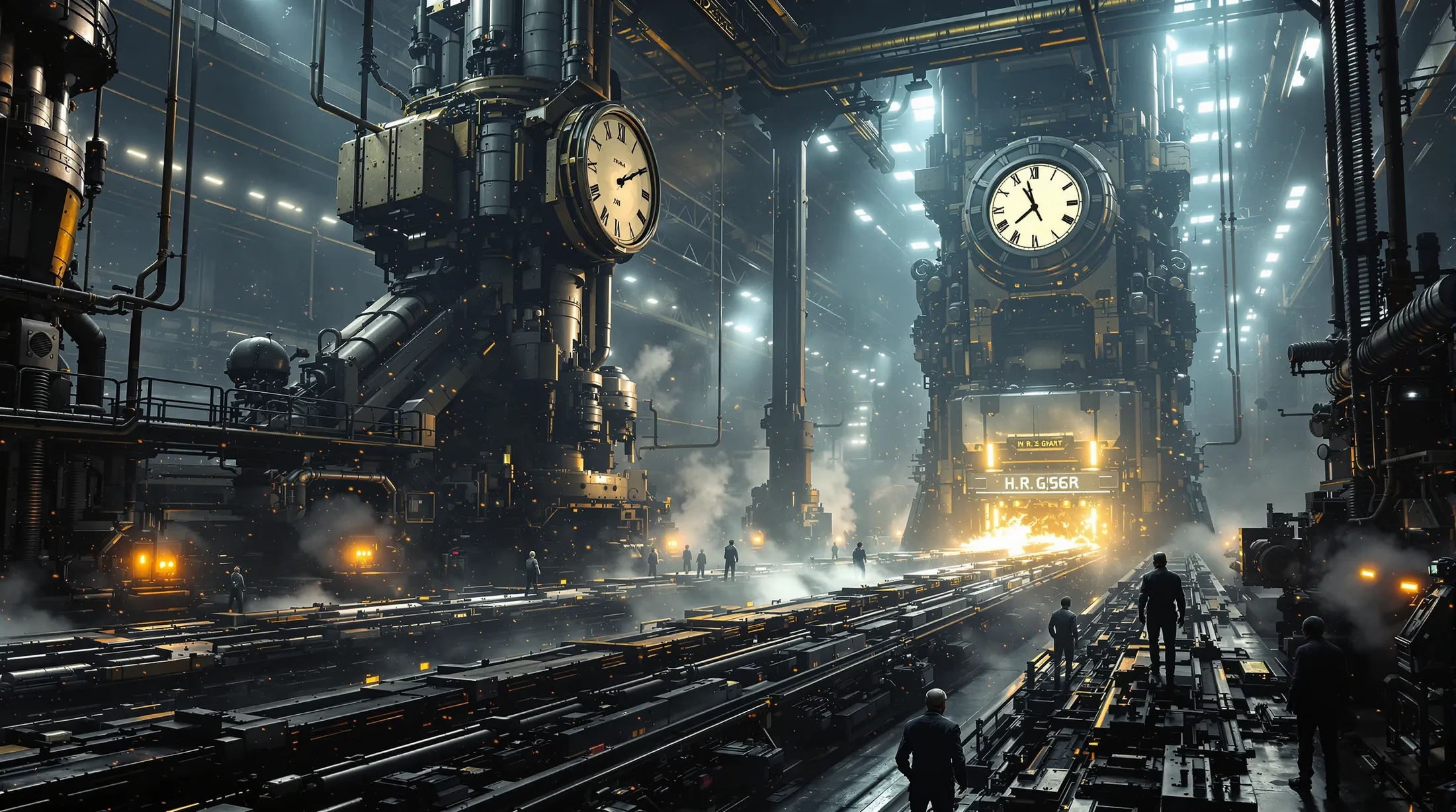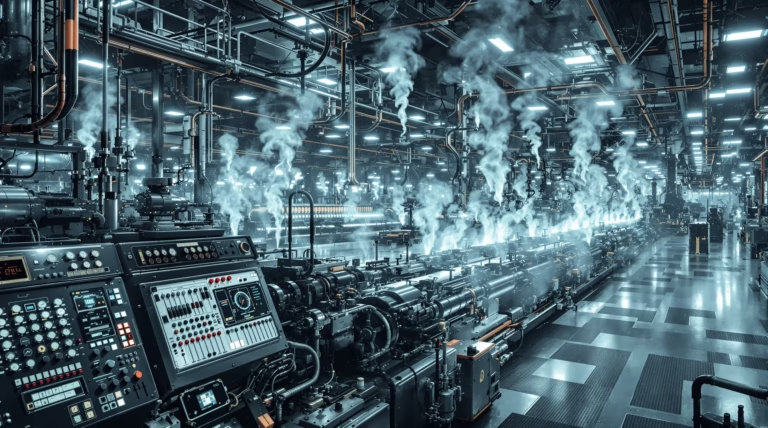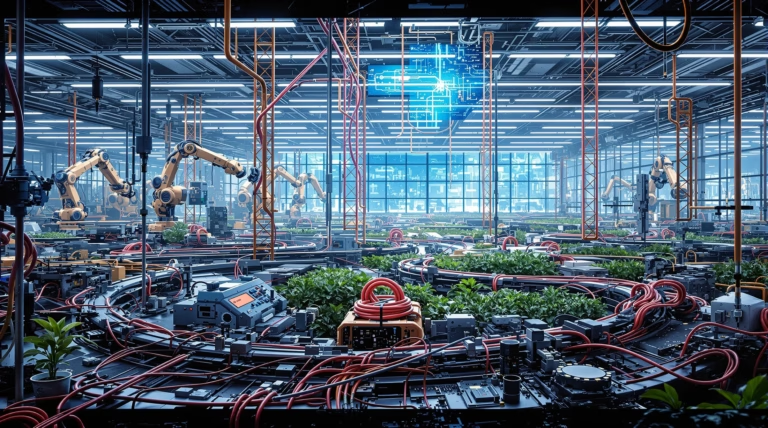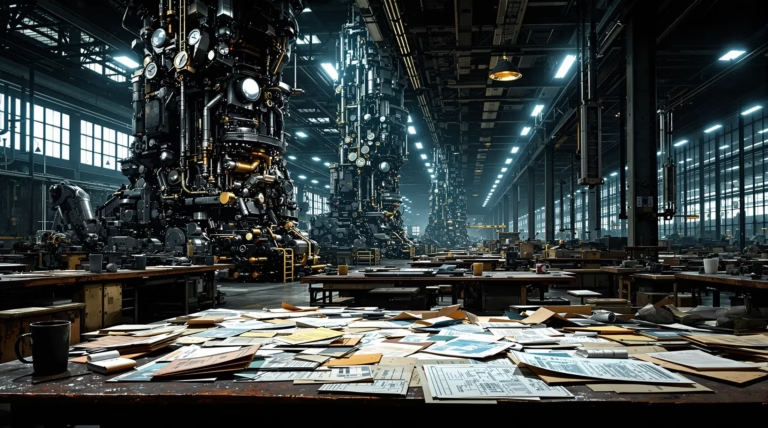Manufacturing Jobs: Explore Opportunities and Career Growth
Looking to build a rewarding career in the manufacturing industry? The manufacturing sector offers diverse opportunities, competitive salaries, and clear advancement paths for professionals at all skill levels. From hands-on production roles to technical engineering positions, this comprehensive guide will help you understand the landscape of manufacturing careers and how to grow within this dynamic field.
Understanding Manufacturing Jobs
Manufacturing jobs form the backbone of industrial production systems worldwide. These positions involve transforming raw materials into finished products through various processes, machinery, and skilled labor. The manufacturing sector offers diverse career opportunities spanning from entry-level positions to high-skilled technical roles and management positions. With technological advancements reshaping traditional manufacturing processes, these jobs now require a blend of technical expertise, problem-solving abilities, and adaptability.
The manufacturing industry continues to evolve, creating new job categories while modernizing traditional roles. Today’s manufacturing careers often involve working with advanced technologies like automation, robotics, and computer-controlled systems. As global manufacturing continues to grow and diversify, so do the career paths available to professionals interested in this field. These positions offer competitive wages, benefits, and often provide clear advancement pathways for those willing to develop their skills.
What Are Manufacturing Jobs?
Manufacturing jobs encompass all positions directly involved in producing physical goods at scale. These roles exist within factories, plants, and production facilities across various industries including automotive, electronics, pharmaceuticals, food processing, and more. At their core, manufacturing jobs focus on converting raw materials into finished products through specialized processes.
- Factory floor operations – machine operation and assembly
- Engineering roles – process design and optimization
- Operations management – workflow coordination
- Quality assurance – product testing and compliance
- Logistics – supply chain management
- Administrative support – documentation and coordination
Types of Manufacturing Jobs
| Job Category | Description | Required Qualifications |
|---|---|---|
| Manufacturing Engineer | Designs production systems and improves processes | Bachelor’s degree in engineering |
| Assembly Worker | Assembles components according to specifications | High school diploma, technical training |
| Skilled Trades | Specialized work in machining, welding, maintenance | Technical certification, apprenticeship |
| Operations Manager | Oversees production workflow and resource allocation | Bachelor’s degree, industry experience |
Exploring Career Growth in Manufacturing
The manufacturing sector offers abundant opportunities for professional development and career advancement. Unlike many industries with limited vertical movement, manufacturing provides multiple pathways for progression—whether through technical specialization, leadership roles, or cross-functional expertise. This sector rewards both practical experience and ongoing education, creating a meritocratic environment where skilled professionals can thrive.
Skills Needed for Career Advancement
- Technical Skills:
- Process optimization
- Quality control methodologies
- Equipment maintenance
- Digital literacy
- Manufacturing execution systems (MES)
- Enterprise resource planning (ERP)
- Soft Skills:
- Problem-solving abilities
- Communication skills
- Leadership capabilities
- Project management
- Business acumen
Training and Development Opportunities
Manufacturing organizations provide comprehensive training pathways to support career advancement. In-house training programs cover essential areas such as equipment operation, safety protocols, quality standards, and process improvements. These programs effectively combine classroom learning with practical hands-on experience, ensuring thorough knowledge application.
- In-house training programs
- Equipment operation and safety
- Quality control standards
- Process improvement techniques
- Hands-on practical training
- Specialized skill development
- External partnerships
- Community college programs
- Technical school certifications
- Industry association training
- Professional development workshops
- Specialized certification courses
Beyond formal education, manufacturers offer cross-training opportunities that allow employees to expand their expertise across different production areas. This versatility enhances worker value while providing comprehensive insights into manufacturing operations. Structured mentorship programs facilitate knowledge transfer between experienced professionals and emerging talent. Advanced development initiatives include leadership training, technical certifications, and tuition reimbursement for relevant degrees. With manufacturing’s increasing technological sophistication, continuous learning has become essential for career longevity and advancement.
Finding Manufacturing Job Opportunities
The manufacturing sector presents diverse employment opportunities across multiple locations and specializations. Modern digital platforms have revolutionized the job search process, offering specialized resources tailored to manufacturing professionals. These platforms connect qualified candidates with employers seeking specialized talent across various locations, from Alabama to Arizona, and major cities like Atlanta and Austin.
Contemporary manufacturing job platforms provide comprehensive career support tools, including resume management features, career planning resources, and customized job alerts. Available positions range from manufacturing engineering roles and operations management to assembly work and skilled trades, accommodating professionals at every career stage within the manufacturing ecosystem.
Top Platforms for Manufacturing Job Listings
| Platform | Key Features | Benefits |
|---|---|---|
| ManufacturingJobs.com | State-specific listings, category filtering | Industry-focused opportunities, comprehensive organization |
| Professional networking, skill showcasing | Direct connection with hiring managers, broader visibility | |
| Industry-specific boards | Specialized position listings, advanced filtering | Targeted opportunities, streamlined search process |
Tips for a Successful Job Search
- Strategic Search Techniques
- Utilize keyword-based search functions
- Set up targeted job alerts
- Leverage career planning resources
- Identify and address skill gaps
- Monitor industry trends
- Application Optimization
- Tailor resumes for specific positions
- Highlight relevant technical skills
- Showcase certifications and experience
- Utilize resume management tools
- Research company-specific requirements
The Future of Manufacturing Jobs
Digital technologies and automation are fundamentally transforming the manufacturing landscape. According to Deloitte’s research, these technological advances are reshaping job roles and required skill sets throughout the sector. While some traditional positions may decline, new opportunities are emerging in specialized areas that combine technical expertise with digital literacy.
The future manufacturing workplace will likely feature a collaborative model between humans and machines. While full automation becomes technically feasible, human workers remain essential for system monitoring, maintenance, and optimization. Future manufacturing roles will emphasize technological system management, creative problem-solving, and quality assurance, creating more intellectually engaging positions while improving workplace safety through reduced exposure to hazardous environments.
Emerging Trends in Manufacturing
Digital manufacturing technologies are fundamentally reshaping the industry landscape, creating innovative career pathways. The integration of Internet of Things (IoT), artificial intelligence, and advanced analytics has enabled smarter production systems capable of predictive maintenance, optimized material usage, and adaptive production responses. This technological evolution has generated demand for specialists who can install, program, and maintain these sophisticated systems.
- Key Manufacturing Transformations
- Flexible, adaptive production models
- Dynamic system responsiveness
- Green manufacturing initiatives
- Sustainable material development
- Renewable energy integration
- Waste reduction programs
While manufacturing employment has decreased by nearly one-third since the late 1990s, the sector isn’t disappearing but evolving into a more technologically advanced and environmentally conscious industry. This transformation demands workers with broader skill sets who can understand and manage multiple aspects of the production process.
Impact of Technology on Manufacturing Careers
| Technology Impact | Career Implications |
|---|---|
| Advanced Automation & Robotics | Shift from routine tasks to complex problem-solving roles |
| Digital Integration | Creation of hybrid positions combining mechanical and digital expertise |
| Data-Driven Operations | Need for analytical skills and digital literacy |
The technological revolution in manufacturing is creating more intellectually stimulating positions that merge traditional expertise with digital capabilities. Modern manufacturing professionals must develop technical skills alongside conventional manufacturing knowledge, particularly in roles like maintenance technicians who handle both physical machinery and control software.
Manufacturers’ investments in sophisticated technology serve dual purposes: improving productivity and building operational resilience. This evolution emphasizes the importance of adaptability and continuous learning as core career competencies. Rather than eliminating jobs, these technological advancements are creating enriched career paths for professionals willing to expand their skill sets.







